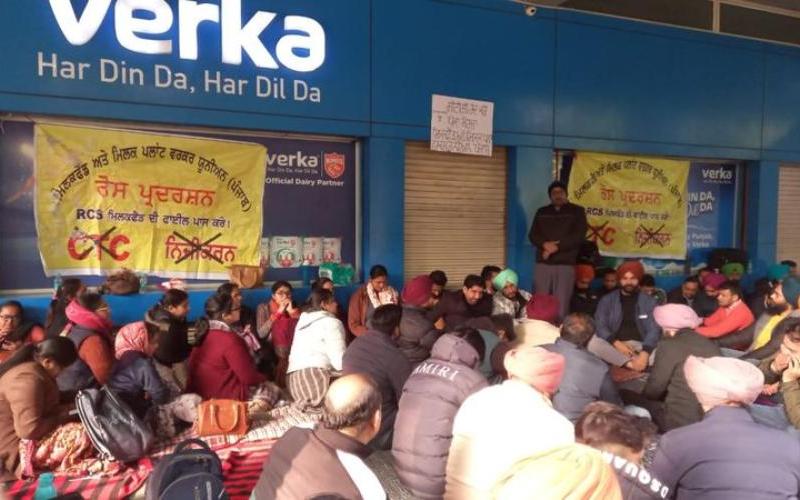Verka Strike Threatens 12 Lakh Litres: $1.8M Daily Loss
Source: dairynews.today
Outsourced staff at Verka milk plants initiate a three-day strike, jeopardizing a significant portion of Punjab’s milk supply and potentially causing millions in losses.

The Indian dairy industry faces turbulence as Verka’s outsourced staff commence a state-wide strike demanding employment regularisation. Spearheaded by the Verka Milk Plant Contract Mulazam Union Punjab, workers assert their crucial role in handling over 90% of operations and demand stability through regular employment.
The strike threatens to disrupt the supply of 12 lakh litres (1.2 million litres) of milk daily, with potential losses reaching up to ₹15 crore (USD $1.8 million) over three days. Union Pressure and Economic Risks: Union president Pawandeep Singh emphasized that the economic impact could escalate if demands aren’t met, questioning the balance between union demands and operational continuity.
Meanwhile, Milkfed MD Rahul Gupta insists on the functional status of the plants, attributing such assurance to the Essential Commodities Act, while accusing the union of impeding recruitment. Labor Dependence on Outsourced Workers: Revised data reveals a significant dependency on contractual workers, with only 700 to 800 of around 6,000 sanctioned posts occupied by permanent staff, underlying the union's power. Tensions in Dairy Labor Relations: In a bid to resolve ongoing conflicts, Gupta proposed incentives for outsourced workers in recruitment exams, which the union rejected, deepening industry-wide labor strife.
The strike threatens to disrupt the supply of 12 lakh litres (1.2 million litres) of milk daily, with potential losses reaching up to ₹15 crore (USD $1.8 million) over three days. Union Pressure and Economic Risks: Union president Pawandeep Singh emphasized that the economic impact could escalate if demands aren’t met, questioning the balance between union demands and operational continuity.
Meanwhile, Milkfed MD Rahul Gupta insists on the functional status of the plants, attributing such assurance to the Essential Commodities Act, while accusing the union of impeding recruitment. Labor Dependence on Outsourced Workers: Revised data reveals a significant dependency on contractual workers, with only 700 to 800 of around 6,000 sanctioned posts occupied by permanent staff, underlying the union's power. Tensions in Dairy Labor Relations: In a bid to resolve ongoing conflicts, Gupta proposed incentives for outsourced workers in recruitment exams, which the union rejected, deepening industry-wide labor strife.
Key News of the Week










